What Is a Partial Hospitalization Program (PHP)?
The Partial Hospitalization Program (PHP) at Harmony Ridge offers intensive and comprehensive care for individuals seeking recovery from substance use disorders. Our experienced team will tailor the program to suit your specific needs.
Having completed a residential program, some patients may still require intensive care. They may be at a stage beyond Inpatient programs, but are not quite ready for more lenient Outpatient programs. For such cases, we at Harmony Ridge Recovery propose the best Partial Hospitalization Program West Virginia has to offer. Combining the best of both worlds, this type of program can serve as an excellent stepping stone for the remainder of your recovery.
If you would like to know more about our Partial Hospitalization Program and how it can best serve your needs, please read on.
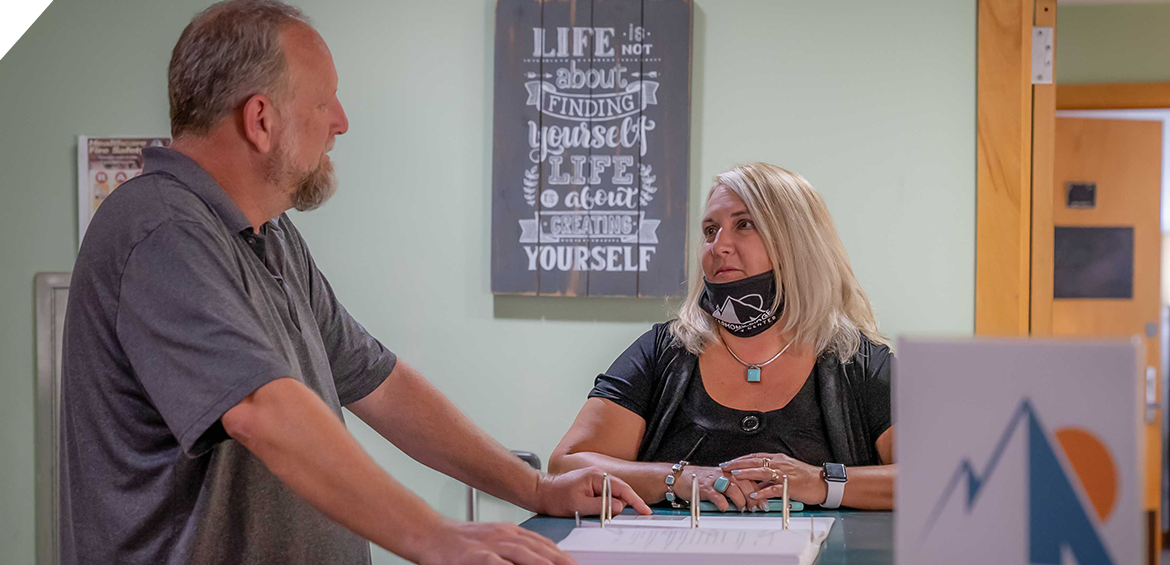
Partial hospitalization programs offer more time in treatment than standard outpatient programs. Thus, PHPs are highly effective in treating substance addictions along with any of their co-occurring mental health issues.
Partial hospitalization program patients must receive treatment at a recovery center for a minimum of approximately 3 to 5 days a week, 4 to 6 hours a day while still residing at home. This makes a hospitalization program that’s partial more intensive than a standard outpatient program, which only meets once or twice a week.
A partial hospitalization program is often used as a step-down service once a patient has completed an inpatient program. Partial hospitalization programs are best for individuals who don’t require 24-hour supervision but would still benefit from a high level of support.
Individuals in a hospitalization program that’s partial participate in a variety of evidence-based therapies. Individuals in PHP treatment are also medically monitored during their time and treatment.
The mission of a partial hospitalization program is to provide comprehensive care for individuals with substance abuse and any co-occurring mental health issues. Partial hospitalization programs also aim to give rehab patients the ability to live their lives in the real world during the period of time that they’re receiving treatment.
Partial Hospitalization Services
Before partial hospitalization program (PHP) treatment begins, medical staff will conduct an intake evaluation on any incoming patient. This intake evaluation is then used to develop an individualized treatment plan. This individualized treatment plan is based on the incoming rehab patient’s addiction and mental health condition.
Individuals in a hospitalization program that’s partial participate in comprehensive recovery programs. In these comprehensive recovery programs, rehab patients work closely with many different treatment specialists. Examples of such treatment specialists include nurses, social workers, doctors, therapists, and psychiatrists.
Listed below are some of the typical services offered within partial hospitalization program treatment:
- Detox: Most partial hospitalization programs have physicians that are always available. Such physicians provide rehab patients with medications while they detox from alcohol or drugs before treatment. PHPs that offer detox prior to treatment will generally only treat patients experiencing mild to moderate withdrawal symptoms though. This is because the patients with severe or life-threatening withdrawal symptoms require supervision and pharmaceutical support provided by a detox facility before enrolling in a PHP for further treatment.
- Medical services: Doctors and nurses are also in-house during PHP treatment. Such PHP doctors and nurses administer withdrawal medications to patients and treat any of their physical complications from substance abuse.
- Medication management: When combined with behavioral therapy, medication management helps to promote abstinent behaviors. Medication management does so by decreasing the cravings of patients and blocking the reward effects of drugs and alcohol. It also does so by managing withdrawal symptoms such as anxiety and insomnia.
Additional Partial Hospitalization Program Services
- Individual therapy: During individual therapy within a partial hospitalization program, patients meet with their therapists or addiction counselors one-on-one. While rehab patients do this they maintain their abstinence and work out their unhealthy behaviors.
- Group counseling: The group counseling sessions within a partial hospitalization program focus on one specific topic. They also are facilitated by certified mental health professionals. Examples of PHP group counseling session topics include religious beliefs, educational groups, coping skills, life skills, stress management, recreational activities and team building, therapy, and family education.
- Aftercare planning: During aftercare planning at the end of a partial hospitalization program, the treatment team prepares patients for discharge. Aftercare planning within a PHP can consist of relapse prevention tactics. Examples of such relapse prevention tactics include support groups, 12-step programs, group or individual counseling, and sober home arrangements.
- Holistic treatments: Some PHPs will offer patients holistic treatments. This is dependent on the rehab facility that a person is receiving partial hospitalization program treatment at. Examples of the holistic treatments that PHPs may offer include meditation, yoga, equine therapy, fitness classes, nutrition, and art and music therapy.
Most partial hospitalization programs are equipped to treat patients with dual diagnoses. Thus, if you or somebody you love has been diagnosed with a mental health condition along with a drug or alcohol use disorder, our treatment specialists here at Harmony Ridge can provide you with PHP treatment that can help you achieve recovery. Just check to see if your health care pays for such PHP treatment.
The Addictions Treated
That said, PHP programs are not exclusive to any one type of addiction. A wide array of addictions may require partial hospitalization, depending on factors like:
- Addiction severity, duration, and past addiction history which require different levels of care
- Co-occurring mental health disorders, ie dual diagnosis
- Unique gender-based, occupation-based, and other needs, such as rehab for veterans
To address this, we at Harmony Ridge treat a variety of common, prevalent addiction types. Whether you need a partial hospitalization program in West Virginia, or any other program which best caters to your needs, you can rest assured we will tailor our services to almost any type of addiction.
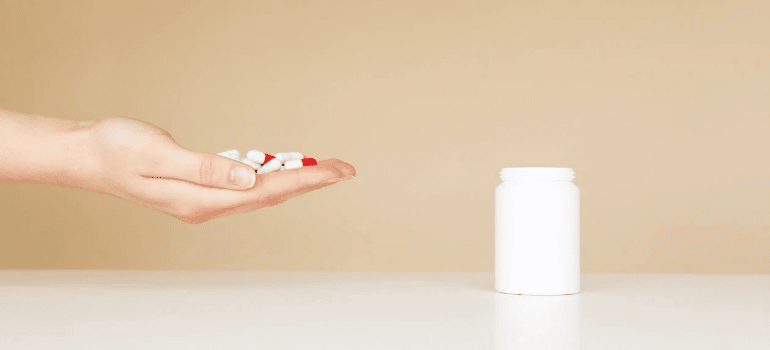
In brief, the addictions we treat are the following.
Alcohol
A unique addiction, given its cultural status as more broadly acceptable, alcohol addiction is nonetheless prevalent and disruptive. In fact, we have found that alcohol addiction is among the most common reasons to seek partial hospitalization program in West Virginia. With this in mind, Harmony Ridge Recovery offers extensive alcohol rehab WV continues to trust.
Cocaine
A well-known stimulant, cocaine may be among the most addictive illicit substances in circulation today. Cocaine addiction rehab thus requires a very careful and calculated approach, which our experts are fully prepared to offer.
Heroin
While no longer the prime candidate for drug addiction it once was, heroin is nonetheless a very dangerous substance to develop an addiction to. Our heroin rehab centers come fully prepared to treat these types of addiction as well.
Meth
Much more known by its street name of meth than its medical name, Methamphetamine is a very potent stimulant, and one of the most commonly used illicit drugs. It is extremely addictive, and one of the hardest addiction types to treat. If you find yourself in need of the best meth rehab center West Virginia has to offer, we at Harmony Ridge are at your service.
Fentanyl
More than a potent painkiller, the synthetic opioid that is Fentanyl continues to see widespread misuse and fuels addictions. Fully aware of its many risks if left untreated, we also offer extensive fentanyl detox treatment.
Ambien
Approved by the FDA as a treatment for insomnia and similar sleeping problems, ambien still sees misuse as well. Its rather high potential for addiction makes ambien rehab a necessity, which our catalogue also includes.
Barbiturates
Much like ambien, barbiturates see medical use in treating insomnia, alongside anxiety and other ailments. However, these depressants are also prone to addiction, which our barbiturates rehab programs are prepared to handle.
Benzodiazepine
Another type of drugs, Benzodiazepines are a type of depressants which can treat an array of sleep disorders and mental health disorders. They, too, carry a high risk of addiction, especially if misused – making our benzo rehab offerings a necessity.
Stimulants
Illicit stimulants aside, this drug category also includes such household names as Adderall, Ritalin, Concerta, and others. Their primary medical use is to treat ADD and similar disorders, but stimulants tend to be highly addictive nonetheless. If you need a stimulants addiction rehab center, we are happy to be of service.
Opiates
A subcategory of opioids, opiates are some of the most addictive drugs available today. They spearhead the ongoing nationwide opioid crisis, and continue to endanger and claim lives. Our opiate rehab center and our partial hospitalization program in West Virginia come fully prepared to treat this prevalent type of addiction.
Marijuana
Legal in some states, marijuana does have ample medical uses that can justify moderated use. Misused, however, marijuana can be highly addictive and impactful to everyday life. If you or your loved ones need the best marijuana rehab West Virginia has to offer, Harmony Ridge will welcome you.
Treatment Programs That Promote “Whole” Healing
Successful recovery from any substance addiction and mental health issue requires a medical, psychosocial, and holistic approach to treatment.
Rehab patients who are most successful In becoming and staying sober participate and engage in:
- Group therapy five days a week
- Individual treatment once a week
- Family therapy sessions once a week
Our rehab patients here at Harmony Ridge take part in recovery support activities in the community. These activities promote each of our patient’s overall healing and long-term recovery success. They do so by demonstrating how recovery is possible in everyday life situations.
Treating each individual rehab patient as a whole person requires the encouragement of emotional, mental health, and physical wellness.
During the partial hospitalization program addiction treatment process, individuals will expect program-specific clinical groups such as:
- Hypnotherapy
- Mindfulness-based relapse prevention training
- Nutrition
- Psychodrama
- Yoga, meditation, and cranial sacral
- Biofeedback
- Expressive arts therapy
When combined, the programs listed above promote a complete healing process. As our patients here at Harmony Ridge prepare to leave rehab facilities, the mission is still to ensure that recovery continues in their everyday lives.
Group Therapy in a Partial Hospitalization Program
Sharing your thoughts with strangers can be daunting, but our PHP group therapy sessions here at Harmony Ridge are entirely confidential. Furthermore, our group therapy sessions are judgment-free zones.
PHP group therapy members here at Harmony Ridge come with their fears and insecurities. Because group therapy members are amongst people with similar addiction and mental health issues, most participants share similar and relatable struggles. Each group therapy session within a partial hospitalization program will incorporate both process groups and educational presentations.
The mission of group therapy is to give patients the opportunity to develop positive coping skills. That way they can manage their addiction and mental health issue triggers while in recovery. Group therapy also encourages effective decision-making. The goals of group therapy support lifelong recovery long after any addiction treatment program is completed.
Some group therapy topics that are discussed within a partial hospitalization program include:
- Healthy lifestyle choices
- Relapse prevention
- Financial planning
Individual Therapy Sessions Within a Partial Hospitalization Program
Here at Harmony Ridge Recovery Center, our mission is to provide each patient with the most individualized level of care possible. To achieve this mission, our partial hospitalization programs offer individual therapy.
PHP individual therapy sessions meet at least once a week. This time allows partial hospitalization program patients to confide in trusted counselors. PHP patients may confide in counselors about the discussions they’ve had with the group during group therapy, what led them to develop their substance use disorders and any of their thoughts that may have had negative effects on their mental health.
PHP individual counseling sessions are vital. This is because they offer partial hospitalization program patients the opportunity to develop and amend their personalized treatment goals. PHP individual therapy sessions here at Harmony Ridge also provide patients with the time to discuss specific clinical and lifestyle issues that they might be experiencing that might have enhanced their addictive behaviors and mental health issues.
Family Support Groups in a Partial Hospitalization Program
Family support group sessions are much like group therapy sessions but with only the members of one family involved. PHP treatment family group therapy sessions aim to educate family members of rehab patients on addiction.
Family group therapy sessions within PHP treatment also show family members of rehab patients how they may have contributed to the development of their loved ones’ addictions along with what they can do to change those toxic behaviors. Family group therapy during PHP treatment even teaches family members of rehab patients how they can show support to their loved ones that are suffering from addiction and mental health issues.
Thus, family group therapy sessions promote support for individuals that are recovering from addiction and mental health issues while also being educational and process-oriented.
12-Steps to Recovery for Drug and Alcohol Addiction
With the above in mind, we should note that every addiction type does differ, and so does each treatment. However, some therapies boast universal efficiency, which is why we thoroughly apply their principles to most cases and most peripheral therapies. The most notable one among them, which our partial hospitalization program West Virginia also relies on, is the 12-step framework.
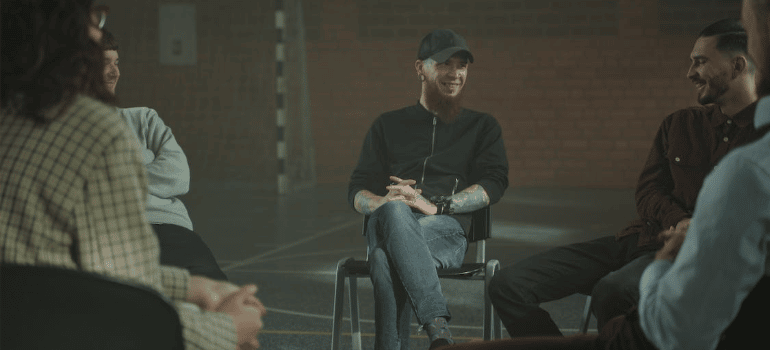
A Brief History of the Twelve Steps
Not to be confused with 12-step interventions, which NCBI addresses “social workers and other behavioral health professionals” with, 12-step programs have their roots in Alcoholics Anonymous (AA). “The Twelve Steps” was a robust, specific course of addressing alcohol addiction which AA coined and outlined decades ago. Over time, these principles were adjusted and applied to treatments for other additions.
For instance, American Addiction Centers (AAC) finds its applications across groups like:
- Narcotics Anonymous (NA)
- Heroin Anonymous (HA)
- Gamblers Anonymous (GA)
Of course, the 12 steps have retained their group focus, as they still employ group dynamics regardless of application.
The Steps To Recovery
In this vein, AAC refines the core of the 12 steps as follows:
- Admitting powerlessness over the addiction
- Believing that a higher power (in whatever form) can help
- Deciding to turn control over to the higher power
- Taking a personal inventory
- Admitting to the higher power, oneself, and another person the wrongs done
- Being ready to have the higher power correct any shortcomings in one’s character
- Asking the higher power to remove those shortcomings
- Making a list of wrongs done to others and being willing to make amends for those wrongs
- Contacting those who have been hurt, unless doing so would harm the person
- Continuing to take personal inventory and admitting when one is wrong
- Seeking enlightenment and connection with the higher power via prayer and meditation
- Carrying the message of the 12 Steps to others in need
In turn, VeryWellMind distills their principles further into:
- Honesty
- Faith
- Surrender
- Soul searching
- Integrity
- Acceptance
- Humility
- Willingness
- Forgiveness
- Maintenance
- Making contact
- Service
In brief, it is these principles that fuel our partial hospitalization program West Virginia trusts as well. With its keen focus on therapy, it stresses the need for vocalization, socialization, and expression. As the individual prepares to leave clinical settings, this is the ideal stage for such endeavors – as our experience shows.

The Difference Between PHP, Inpatient, And Intensive Outpatient Programs
Inpatient treatment requires rehab patients to live in residential facilities while receiving 24-hour care and support. A majority of an inpatient rehab patient’s day is spent in treatment sessions to provide him or her with the most comprehensive care.
Partial hospitalization programs and intensive outpatient programs (IOPs) both offer in-depth treatment for substance use, behavioral, and mental health issues. The main difference between in-depth outpatient program rehabs such as PHPs and IOPs and inpatient program rehab is that the in-depth outpatient program rehab allows patients to spend their days and nights at home in between treatment sessions. Thus, the amount of time that PHP and IOP patients spend in treatment differs from that of inpatient rehab patients.
Intensive outpatient programs don’t consume as much time as partial hospitalization programs do. In fact, the time that rehab patients spend in intensive outpatient program treatment is only approximately 2 to 4 hours a day, 3 to 4 days a week.
This is much less than the approximate 4 to 6 hours per day, 3 to 5 days per week that PHP patients must spend in treatment. As a result, it’s easier for IOP patients to schedule treatment around work, school, and other obligations than it is for PHP patients.
Typically, medical professionals will assess how long rehab patients need to be in treatment based on several factors. Examples of such factors include the severity of people’s addictions and any of their co-occurring mental health issues. A standard partial hospitalization program lasts anywhere from a few weeks to a few months.
Residential Program - Initial Treatment
The very first steps toward aftercare come with residential treatment. This is no exaggeration, as Derek Patton, M.S., MBA, LADC/MAC, and Terry McDowell, B.S., CADC, cited by AAC above, also clarify:
“Despite the name, aftercare planning starts when referral for residential treatment begins. [It is] a continuum of care[.]”
During this early stage, patients will receive medical care and supervision. It is here where dual diagnosis will often occur, shaping aftercare plans through medication needs. Residential programs are typically the most intensive overall, while also largely serving as the basis for future case management.
In this regard, our residential program acts in this exact way; as the foundation of all personalized aftercare plans. Our residential treatment facilities in WV come fully equipped to cater to every addiction’s needs, while our attentive specialists will begin paving the way for later recovery stages.
Who Should Participate in a Partial Hospitalization Program?
Some individuals are more likely than others to benefit from a partial hospitalization program. In general, PHP is best for individuals who:
- Have stable housing and transportation
- Have a strong support system at home
- Require close medical supervision
- Need more support than outpatient programs provide
- Have continual problems with work or school performance
Who won’t Benefit From A Partial Hospitalization Program?
A patient’s life at home can play a significant role in the success of his or her treatment. Patients with unstable home lives and harmful support systems can usually benefit greatly from inpatient care rather than outpatient forms of treatment such as PHP therapy.
Patients who need more personalized care tend to experience the following:
- Being victims of trauma or abuse
- Being around family members with substance abuse and/or mental health issues
- Experiencing co-occurring disorders
- Experiencing relapses
- Lacking healthy support systems beyond treatment
A partial hospitalization program utilizes most of the same addiction and mental health therapies as inpatient care. The technical amount of care and supervision in a PHP is much less than that of inpatient treatment though. This is because PHP therapy is for people who want intensive care that is less hands-on and around-the-clock than what inpatient therapy provides.
Who will Benefit From A Partial Hospitalization Program?
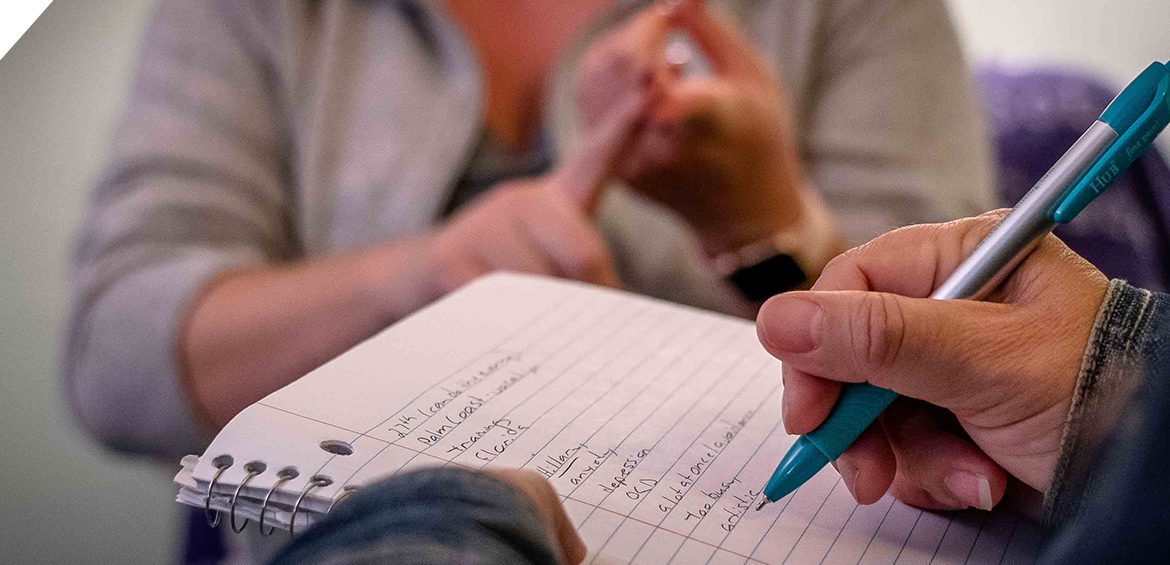
A hospitalization program that’s partial is a level up from an intensive outpatient program. It’s also a level down from inpatient care or residential treatment programs. Thus, people often use PHPs to help them transition back to healthy lifestyles after inpatient care.
Short-term residential programs lay the foundation for recovery. Yet, they usually don’t provide enough time to heal completely. Partial hospitalization programs can build on what was learned in residential treatment though and continue the recovery process.
Some individuals may choose to attend a partial hospitalization program because it allows them to live at home during the time that they’re receiving addiction and mental health treatment. An individual may also enter into a partial hospitalization program if his or her addiction and mental health issues are too severe for IOP therapy. If a rehab patient has a stable home environment and a supportive family, he or she is a good partial hospitalization program candidate.
Partial Hospitalization Program West Virginia - Continued Clinical Care
As case management continues, Partial Hospitalization Programs (PHPs) typically act as a step-down service from residential programs. They best cater to those who still need some clinical care, but no longer require 24-hour supervision and support.
In the context of aftercare, we take pride in offering the most thorough partial hospitalization program West Virginia can offer. Our clinicians and therapists will remain highly attentive to your case’s unique needs, document them, and suggest aftercare frameworks with them in mind. In our experience, patients often begin to develop relapse prevention tools during this stage too, further cementing aftercare plans in place.
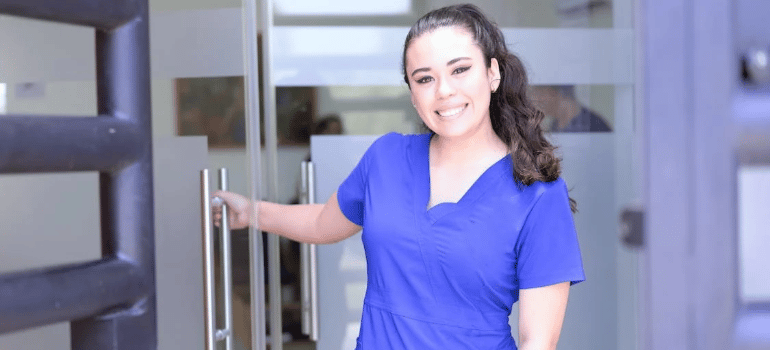
The Experts Leading Programs
Still, implementing and executing such programs successfully requires diligence, professionalism, and thorough expertise. From the admissions process to our partial hospitalization program in West Virginia, and from the final steps to aftercare, there is no room for mistakes.
At Harmony Ridge Recovery we are deeply aware of that, and approach every program with nothing short of unyielding care. Our facilities come with state-of-the-art equipment, and our programs are equal parts flexible and robust, in line with the highest industry standards. But it is our team which leads our programs and guarantees their ultimate success.
As you can see, our staff consists exclusively of licensed, seasoned experts. From our clinicians and therapists to our case managers and alumni coordinators, our team comes with all due certifications and rich experience in their respective fields. They are the proverbial lifeblood of all of our programs, including the partial hospitalization program West Virginia continues to praise over the years.
What is Aftercare and What Makes It So Important?
Having outlined our addiction treatments and our staff’s qualifications, here we may make a crucial note on aftercare treatment. Past any residential, IOP, or partial hospitalization program West Virginia has to offer, you will in most likelihood hear of, or require, aftercare. This is a fundamental term for all kinds of rehab, and comes with ample misconceptions – so here we may address both.

What is Aftercare?
First and foremost, “aftercare” typically refers to all continued care one receives after successful rehabilitation. It includes therapeutic activities and practices like:
- Attending 12-step based meetings
- Continuing to receive therapy
- Connecting with a sponsor
- Participating in alumni programs
In this regard, aftercare is as AAC defines it:
“Aftercare is any type of ongoing care you receive after you leave rehab. [It] is a plan to support someone in their early recovery, prevent relapse, and help them as they work toward their life goals.
An aftercare plan includes activities, interventions, and resources to help a recovering person cope with triggers, stress, and cravings that they may face when treatment is over. Each person’s aftercare plan will vary based upon their own needs.”
However, the crucial distinction that needs to be made here is that aftercare does not begin post-rehab. As AAC stresses, it is a thorough plan; it requires solid foundations and meticulous development from the earliest stages of rehabilitation. Thus, foundations for these relapse prevention tools and communication channels need to be put in place early, and maintained and nurtured across one’s journey to recovery.

Intensive Outpatient Program - Enhancing Aftercare
After competing PHP programs, patients with a persistent need for intensive care will typically opt for Intensive Outpatient Programs (IOPs). These will be largely removed from clinical settings, and patients will afford more freedom with their time. Still, IOPs do remain intensive, and do inform aftercare programs somewhat.
For this step, we are proud to offer the intensive outpatient program West Virginia trusts most. Over the years, it is this step where most of our clients have begun to truly feel ready to open up and address the deepest underlying causes of addiction. It is this crucial quality that best informs aftercare recommendations, from therapy types to therapeutic activity recommendations.
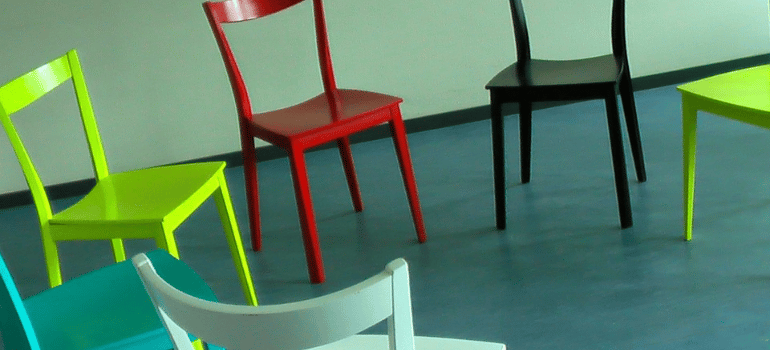
The Importance of Aftercare - Relapse Prevention
All that said, the significance of aftercare cannot be understated. It does serve an array of purposes, such as socialization, building self-reliance, and generally facilitating self-growth. It allows the individual to thrive, while building a robust support network around them. However, its arguable primary benefit and explicit purpose lies in relapse prevention.
Relapse is indeed far from uncommon. The National Institute on Drug Abuse (NIDA) reports that a staggering 40-60% of those with substance use disorders (SUDs) relapse. They do note that “for some people relapse, or a return to drug use after an attempt to stop, can be part of the process”, but seeking to prevent it altogether is the foundation of their statement.
Thus, what thorough aftercare seeks to achieve is to prevent chronic relapse. It allows the individual to maintain abstinence, through trigger management and avoidance. It allows them to reintegrate into daily life, while also having open communication channels if they fear a relapse. For these reasons, aftercare programs need to be the best they can be – as NIH research confirms their substantial effectiveness.

Reasons to Opt For Harmony Ridge
First and foremost, all of our programs abide by our philosophy that every case needs unique treatment. To act on this belief, we will customize each and every journey to recovery to best meet your own, unique needs. To do so effectively, we also offer an array of treatment options across all of our programs, including:
- Individual therapy
- Group therapy
- Family therapy
- Art therapy
- Motivational interviewing
In addition, our programs offer 4 main therapy types with demonstrable effectiveness:
- Cognitive Behavioral Therapy (CBT)
- Dialectic Behavior Therapy (DBT)
- Rational Emotive Behavior Therapy (REBT)
- Eye-Movement Desensitization and Reprocessing (EMDR)
As such, you can rest assured we will take no shortcuts and leave nothing to chance. From our partial hospitalization program West Virginia to advanced aftercare, we will employ every treatment the industry thrives on.

#2 A Holistic Approach To Treatment
In addition, all of our programs follow the principle of holistic therapy to guarantee the best possible results. To do so, our programs offer such therapeutic activities as:
- Art therapy
- Adventure therapy
- Biofeedback
- Music therapy
- Outdoor therapy
- Yoga
- Guided meditation
- Reiki and tai chi
- Spiritual therapy
Our partial hospitalization program West Virginia is not too early to apply such principles either. Exploring the “mind-body meld” may indeed best serve later stages of recovery, but holistic therapy is a philosophy best applied across the journey – much like aftercare. In fact, NIH’s research corroborates this approach.

#3 A Unique Location
Finally, our locations in themselves also serve as a differentiator from our peers. Our programs are enhanced by the idyllic West Virginia countryside, helping our patients become attuned with nature and achieve a quicker recovery. They offer a safe and welcoming environment, away from harmful triggers and stressful everyday life, facilitating rehabilitation better than busy cityscapes.
In addition, our locations offer unique opportunities for group outings and therapeutic activities, including picnics and walks through nature. Such activities are not simply pleasant in the moment either, but come with a wealth of psychological benefits, WebMD finds, including:
- Improved sleep
- Stress relief
- Improvement in mood
- Increased energy and stamina
- Increased mental alertness
If you’d like to see our locations for yourself before deciding, you may visit our photo gallery or take a video tour of our facilities.

Call us Today!
If you’re ready to take the first step forward and reclaim the life you deserve, you can trust Harmony Ridge Recovery to be your unwavering companion throughout rehabilitation. Whether you need a partial hospitalization program in West Virginia or any other program that suits you best, our array of treatment options, experienced staff, and unique location will make your journey safe, welcoming, and memorable.
Contact us today, and start a journey to freedom from addiction like no other.
FAQ
How long do Partial Hospitalization Programs last?
As with all programs, there is no specific duration for PHPs that will work best for everyone or apply universally. The duration of PHPs will always have to depend on the individual’s needs, both before and during the program. Milder cases or precautionary hospitalization may last for a week or two, while more severe cases or ones that present challenges may last much longer.
That said, the average duration of PHPs tends to range from two to four weeks. If a patient progresses to a subsequent program, such as an IOP, but ends up requiring hospitalization again, the new PHP’s duration will often differ from that of the initial one.
How much do Partial Hospitalization Programs cost?
This is also very hard to quantify, as final costs will depend on an array of factors. These include exact services required (such as therapy sessions, psychiatric care, and pharmacotherapy), the program’s duration, and more. In addition, health insurance coverage will differ significantly among providers and plans as well.
Generally, PHPs tend to cost between $350 and 450$ per day. This is only a price trend, however, and both cheaper and more expensive programs may be found. In addition, depending on health insurance coverage, final costs can also differ somewhat.
Whether you choose Harmony Ridge Recovery or another addiction treatment provider, we strongly encourage you to explore your expected costs and coverage in advance. If you do choose us, our representatives will be glad to offer thorough assistance in this regard.
Is partial hospitalization necessary?
No, PHPs are not universally necessary to treat any addiction. As with all programs, they are necessary wherever a specific case requires them to guarantee optimal results. In this sense, PHPs can be a required step on the journey to recovery.
PHPs are typically necessary for relatively severe cases of addiction, where a patient has completed an Inpatient program but has not yet made enough progress to confidently continue treatment unsupervised. In such cases, IOPs/OPs and sober homes may be an unsafe next step forward, as the patient may still require medical care in clinical settings. As a step-down service from Inpatient programs, PHPs are ideally suited for such cases – and are sometimes necessary indeed.
Are Partial Hospitalization Programs effective?
Yes, PHPs are demonstrably effective. As the midway link between Inpatient programs and IOPs, PHPs offer enough unique benefits of their own to make them highly effective for cases where they’re necessary.
Beyond what we stressed above on this issue, PHPs are effective because of their placement in the rehabilitation process. They offer patients some residential freedom, which Inpatient programs could not, allowing them to start reintegrating into everyday life. At the same time, they maintain a strong focus on therapy, making them more effective for more severe cases than IOPs. As they do, they also continue to offer clinical services, which can assist in a variety of cases such as co-occurring mental health disorders.
Still, it is important to repeat that PHPs are not mandatory for each and every case. Rather, they’re a highly effective option for cases that require them.
Which addictions are Partial Hospitalization Programs best for?
Generally, there are no addictions to specific substances that PHPs are best for. As with all programs, their effectiveness depends more on the exact therapies used and how well they meet each case’s needs than on the programs themselves.
That said, some addictions are more severe than others and may require PHPs more often. Such addictions include ones to highly addictive substances such as heroin, longstanding addictions which have had a more severe impact on the patient’s mind and body, and ones that present co-occurring mental health disorders. Such cases typically require more robust and longer Inpatient programs, and require PHPs more often than others.
How can I know if Partial Hospitalization Programs are a good option for me?
On your own, and without due assessment by a professional, it is hard to determine which programs fit you best. PHPs may sound appealing for any reason, but the appropriateness of any program will need to be decided based on your unique case and your progress through the process of rehabilitation.
To draw such conclusions, you will first need to undergo medically-assisted treatment (MAT) for detoxification. Next, you will likely need to continue with an Inpatient program, and decide on PHPs’ usefulness once it ends. If you have made sufficient progress, your treatment providers may determine you should best continue with an IOP. If you have faced challenges, or fear you may still need supervision to remain abstinent, a PHP may be your best option.
In brief, PHPs are typically a step-down service from Inpatient programs, not standalone programs for all cases. As such, whether they fit you best will need to be determined by your treatment providers at the time.
Jump To Section
Begin Your Journey to Healing Here
Ask me about recovery, I can help you!
Our recovery specialists are standing by 24/7 to help you or your loved one.
Or call us: 


